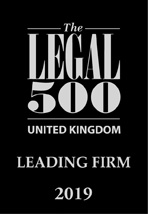The latest changes to the Civil Procedure Rules come into force on 1 October 2020.
One of the most notable changes is an addition to Practice Direction 35 which relates to the Statement of Truth provided by experts and assessors in their expert reports.
The new declaration essentially mirrors the changes which were made to the Statements of Truth for all Pleadings and Witness Statements earlier this year. The person making the Statement of Truth must confirm their understanding that proceedings for Contempt of Court can be brought against anyone making or causing to be made, a false statement in such documents without an honest belief in their truth.
It may seem a little surprising that experts need to be reminded of these sanctions each and every time they sign reports.
This is particularly the case when one considers the duty of experts in the context of civil litigation.
In our personal injury and clinical negligence work, it is standard for us to require expert evidence from various medical professionals in order that we can ultimately present our clients' cases to the Court. In practice, these reports are also almost always the means by which we are able to present our clients' cases to the Defendant’s insurers or their legal representatives and negotiate a settlement.
In cases where proceedings have to be issued at Court, in claims involving significant compensation, it is quite common for the Defendant’s legal representatives to seek permission from the Court to obtain their own expert medical evidence. Permission is often granted, in particular if there is a range of medical opinion about a particular aspect of the injury concerned.
Whilst this results in a situation where each party has their own medical expert(s) it is important to remember that the duty of each of these experts is not to the party whose legal representatives have instructed them.
Part 35.3 of the Civil Procedure Rules states the following:
- It is the duty of experts to help the court on matters within their expertise.
- This duty overrides any obligation to the person from whom experts have received instructions or by whom they are paid.
At Bell Lax, we understand the importance of instructing experts who have a high degree of expertise in their chosen fields and also, wherever possible, plentiful experience of providing evidence to the Court orally at trial.
The ability of an expert to persuade the Court that their view on a given issue is correct in the face of contrasting evidence from their opposite number can make a significant difference to the amount of compensation received by a Claimant.
Often, central to this issue is the ability of the Court to accept the expert as impartial, experienced and fundamentally somebody who understands the effect of signing the Statement of Truth on their expert report.
If you or someone you care about has sustained an injury as a result of an accident or clinical negligence, please feel free to contact one of our specialist lawyers for a free no obligation discussion on 0121 355 0011.









Comments